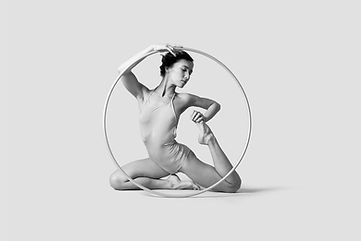385-500-2934


Pelvic Floor Therapy
Who can benefit from Pelvic Floor Therapy at Integrative Physical Therapy?
The short story is: anyone with pelvic floor issues or with orthopedic issues that haven’t responded to other treatment approaches, including traditional physical therapy, may benefit from pelvic floor focused physical therapy.
Read below for details on common problems that I can help with.
Empower
Growth
Do you leak urine with activities such as coughing, sneezing, or exercise? Are you wearing pads/protection because of leaking?
Urinary leakage is surprisingly common across the lifespan. Usually, it is a result of pelvic floor tightness, weakness, or poor strategies that I address with physical therapy treatment.
Do you find yourself urgently running to the bathroom, perhaps leaking on the way? Do you feel like you’re going to the bathroom frequently, or you’re often anxious about when you’ll have the next opportunity to use the toilet?
I can help you figure out why this is happening, treat any associated pelvic floor impairments, and teach you strategies to regain control.
Do you feel vulnerable with pelvic heaviness and pressure, or feel like something is falling out of you vaginally or rectally? Do these symptoms cause you to limit your activity or affect bowel or bladder function?
These symptoms are often associated with a diagnosis called pelvic organ prolapse. I am trained to assess prolapse from a functional standpoint. I can assess your tissues and pelvic floor function and provide a treatment program that may mitigate your prolapse and symptoms or empower you to prepare for and recover from surgery optimally.
Do you have hip, buttock, or back pain that hasn’t responded to treatments, including previous physical therapy? Do you feel like you are sitting on a small rock or have tailbone pain?
There are muscle and fascia connections throughout these areas, and often the pelvic floor is overlooked by other providers. The pelvic floor could be the missing link to finding lasting relief of your symptoms.


Empower
Growth
Are you frequently constipated or are things moving slower than you’d like? Are you having difficulty passing a bowel movement (pooping) without bearing down or without pain? Do you frequently use enemas or laxatives? Do you have recurring hemorrhoids or fissures?
Abnormal pelvic floor function and tightness can contribute to dysfunctional
bowels. Constipation often makes urinary incontinence worse, so it’s important to address this if you have symptoms.
Do you have pain with intercourse or use of tampons/menstrual cups or discs? Are you anxious about starting penetrative sexual activity?
Whether your pain has been an issue from the beginning of vaginal penetration or a response to a more recent life/health event, I can identify the root cause of your pain, employ appropriate treatments, and provide you with strategies and exercises for more comfortable penetration.
Do you want to age well and without unnecessary interventions, but don’t know where to start and what to prioritize? Are you limited in your wellness because of pain, injury, or impairment?
Wellness starts with a prevention mindset. The exercise and activity that our body needs to optimize muscle, bone, and cardiovascular health changes throughout our lifespan. Hormonal changes during perimenopause and menopause influence nearly every system in our bodies. I can address many of these systems (cardiovascular, musculoskeletal, and genitourinary) with a plan to support you where you are, address any specific impairments, and educate you on wellness strategies that will serve you well through future stages of life.
Pregnancy Related Concerns
Empower
Growth
Do you have pain with activities such as rolling in bed, or with single leg activities such as walking, getting dressed, or getting out of bed?
I will assess your movement and work with you to identify your areas of weakness or tension, and teach you what you can do to address these issues so that you can maintain wellness throughout pregnancy and your postpartum recovery.
Do you ever wonder how that baby is going to come out of you? Do you have specific goals for your birth and want to be equipped for delivery and postpartum?
I will teach you strategies for labor and delivery, ways to prevent vaginal tearing, techniques for breathing and pushing, and ways to prepare for delivery (vaginal or c-section) or the immediate postpartum recovery.


Are you concerned about abdominal weakness or separation? Do you notice your abdomen “coning” or “doming” with daily activities or exercise? Is your abdominal scar (c-section) tight or painful? Do you feel like you have a shelf above your C-Section scar?
I will assess your Diastasis Recti for you and teach you appropriate core engagement and exercises designed to restore your core. Residual scar tissue can contribute to pain and prevent our myofascial system from functioning optimally. I can address your scar tissue with manual
techniques for optimal myofascial function.
Are you wanting to return to your fitness routine but are concerned about your pelvic floor or core function? Are you wanting to exercise but don’t know how or where to start?
Every birth and postpartum recovery is unique. The starting point after delivery looks different for everyone.
Let’s schedule a consultation and work through your concerns and barriers so that you can get to it and take care of your wellness in this stage of life.